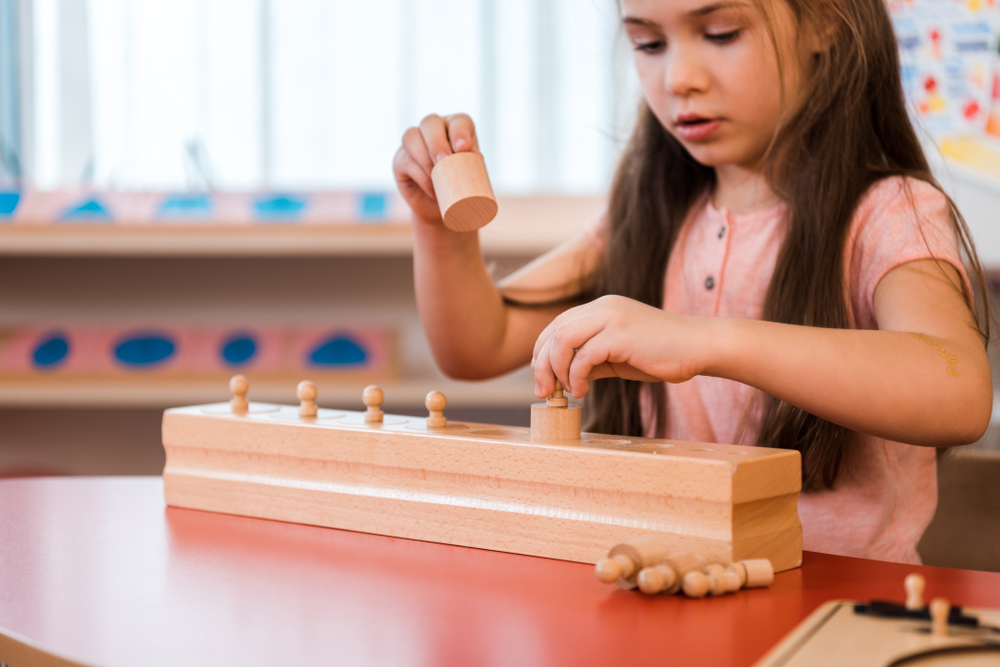Montessori education is a child-centered approach that emphasizes self-directed learning and practical life skills. Learn about the benefits of Montessori education and how it can support children's development and growth.
Montessori education is a philosophy and method of education developed by Dr. Maria Montessori in the early 20th century. It is an approach that is child-centered, emphasizing self-directed learning, individualized instruction, and practical life skills. The Montessori method is widely recognized as one of the most effective and innovative approaches to education, and it has been used successfully in schools around the world for over a century.

In Montessori classrooms, children are encouraged to take an active role in their education, exploring and learning at their own pace and according to their own interests. The focus is on creating a supportive and nurturing environment that allows children to develop independence, confidence, and a love of learning. Explore the benefits of Montessori education, the principles that underpin it, and how it can support children's development and growth.
Montessori classrooms are typically designed with a range of materials and activities that are designed to meet the needs and interests of the children in the class. The materials are often made from natural materials such as wood and are designed to be used in a variety of ways, allowing children to explore and learn in different ways.
Benefits of Montessori Learning vs. Traditional Learning
There are several benefits to Montessori education compared to traditional learning methods.
-
One of the most significant benefits is that Montessori education is designed to support children's natural curiosity and love of learning. By providing an environment that is designed to encourage exploration and discovery, children are more likely to develop a lifelong love of learning.
-
Montessori education is also designed to support children's development in a holistic way, focusing on the physical, intellectual, and emotional aspects of their development. This means that Montessori education is designed to support children's social and emotional development, as well as their intellectual development.
-
Another benefit of Montessori education is that it is designed to support children's individual needs and interests. Montessori classrooms are typically designed with a range of materials and activities that are designed to meet the needs and interests of the children in the class. This means that children are more likely to be engaged and motivated in their learning, as they are able to follow their own interests and work at their own pace.
In addition, Montessori education is designed to support children's independence and self-esteem. By providing an environment that is designed to support children's independence and self-directed learning, children are more likely to develop a sense of autonomy and confidence in their abilities.
How to Find a Montessori School
If you are interested in finding a Montessori school for your child, there are several things that you can do to start your search. One of the best places to start is by talking to other parents who have children in Montessori schools. They may be able to provide recommendations for schools in your area and give you an idea of what to expect from the Montessori education experience.
You can also search online for Montessori schools in your area. Many Montessori schools have websites that provide information about their programs, admission requirements, and tuition fees. You can also check with your local school district to see if they have any Montessori programs or schools in your area.
When you are researching Montessori schools, it is important to visit the schools in person. This will give you a chance to see the school environment, meet the teachers, and observe the children in the classroom. You can also ask questions about the school's philosophy, curriculum, and teaching methods.
How Young Can Your Child Start a Montessori Education?
Montessori education is designed to support children's development from birth through adolescence. This means that children can start a Montessori education as early as infancy, through a program called Montessori infant/toddler education.
Montessori infant/toddler education is designed to support children's development in the first three years of life, focusing on the development of movement, language, and social skills. In Montessori infant/toddler education, children are provided with a safe and nurturing environment that is designed to support their natural development.
As children grow older, they can continue their Montessori education in a primary program, which is typically designed for children aged three to six years old. In a Montessori primary program, children continue to develop their skills in practical life, movement, language, and mathematics, as well as other areas such as science, art, and music.
Beyond the primary program, Montessori education typically includes elementary and secondary programs, which are designed to support children's development through adolescence. In these programs, Montessori education continues to focus on supporting children's independence, creativity, and critical thinking skills.
If you are interested in Montessori education for your child, there are several things that you can do to start your search, including talking to other parents, searching online, and visiting schools in person. With the right Montessori education, your child can develop the skills and confidence they need to thrive in today's world.